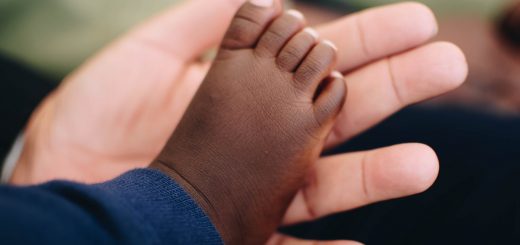A change in relationship
As we continue on through Hosea chapter 2, we see how God has a vision of the relationship between Himself and His people changing. Maybe at first it was like an arranged marriage. Promises made by Israel the wife out of duty and gratitude for being saved from Egypt, but not out of true love. Promises that hold for a while, before the wife starts to look elsewhere for provision and protection. Before she starts to trust another and turn her attention away from her husband.
Because duty and convention and obligation and even gratitude will only take us so far. If commitment doesn’t come from a deep-rooted love welling up out of the heart, then it will be shallow and easily uprooted. It will be dependent on circumstance. When the going gets tough, that fragile commitment will start to crumble and we will be tempted to look elsewhere for satisfaction and attention and fulfilment.
I’m talking about in our human relationships, but also in our relationship with God.
“In that day,” declares the Lord,
“you will call me ‘my husband’;
you will no longer call me ‘my master.’
I will remove the names of the Baals from her lips;
no longer will their names be invoked.
In that day I will make a covenant for them
with the beasts of the field, the birds in the sky
and the creatures that move along the ground.
Bow and sword and battle
I will abolish from the land,
so that all may lie down in safety.
I will betroth you to me forever;
I will betroth you in righteousness and justice,
in love and compassion.
I will betroth you in faithfulness,
and you will acknowledge the Lord.
“In that day I will respond,”
declares the Lord—
“I will respond to the skies,
and they will respond to the earth;
and the earth will respond to the grain,
the new wine and the olive oil,
and they will respond to Jezreel.
I will plant her for myself in the land;
I will show my love to the one I called ‘Not my loved one.’
I will say to those called ‘Not my people’, ‘You are my people’;
and they will say, ‘You are my God.’” Hosea 2:16-23
 There’s a change of relationship: no longer the subservience of a servant to a master, but a love of a wife to a husband. Obedience is no longer rooted in power and fear, but in love and trust. She will no longer have any need in her heart for other gods, other providers and protectors. Everything in creation will be in right relationship. There will be peace in the land. She will be safe. This betrothal, this engagement, will be everlasting, surrounded by righteousness, justice, love, compassion and faithfulness.
There’s a change of relationship: no longer the subservience of a servant to a master, but a love of a wife to a husband. Obedience is no longer rooted in power and fear, but in love and trust. She will no longer have any need in her heart for other gods, other providers and protectors. Everything in creation will be in right relationship. There will be peace in the land. She will be safe. This betrothal, this engagement, will be everlasting, surrounded by righteousness, justice, love, compassion and faithfulness.
God will reach out and show love to the one He’d previously called ‘Not my loved one’. Once again, He will call them His people and they will call Him their God.
Just as God reached out to His people then, He is reaching out to us today. He doesn’t want people to follow Him because they’re scared or feel they ought to, or because upbringing or culture dictates. He doesn’t want people to feel obliged to believe in Him out of a sense of duty. Or to do it because they’ve always done it. He doesn’t want people to respond to Him because they’re scared of what will happen to them when they die.
For God, it is all about love. He loves us. He is reaching out in love. He wants us to respond in love. To trust Him and obey Him because we love Him. To commit to this love each day, to work on it, to deepen it, to cherish it.
Faith can so easily become about rituals and habits and a tick list of things to be done each day: prayer, reading the Bible, going to Church, giving money, a random act of kindness…And an even longer tick list of what not to do emerges too: do not swear, do not wear short skirts, do not smoke, do not watch horror films, do not drink, do not chew gum in the street (Oh, you’d be amazed at some of the things people attribute to faith that have absolutely nothing to do with it!).
But God makes it clear. Faith is about love. It is about relationship. Trust and obedience grow out of love. It’s dynamic and evolving and deepening all the time. Whatever we do and say, whatever we are being changed into, comes out of a place of love.
What is our faith based on?
Do we think of our faith as a relationship with God?
How does that relationship compare to the other relationships in our lives?
Where is the love?












